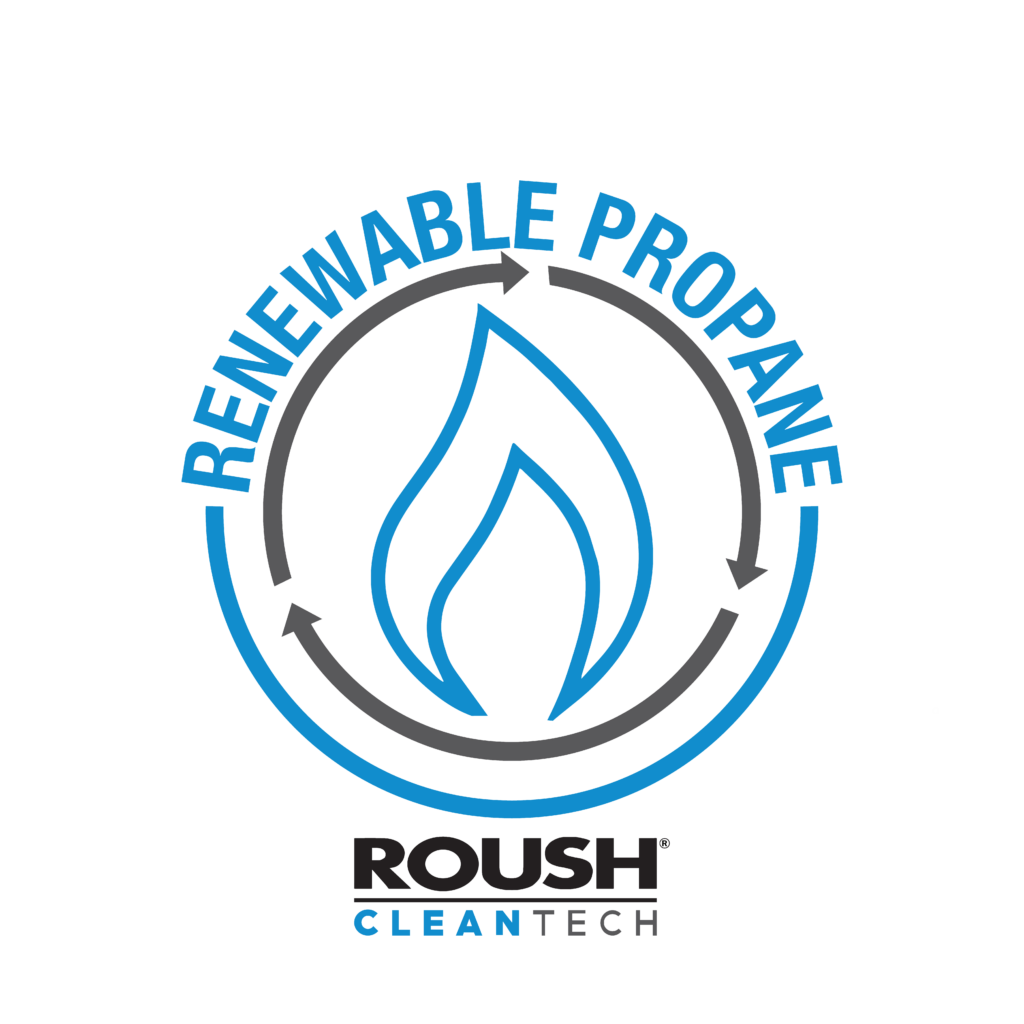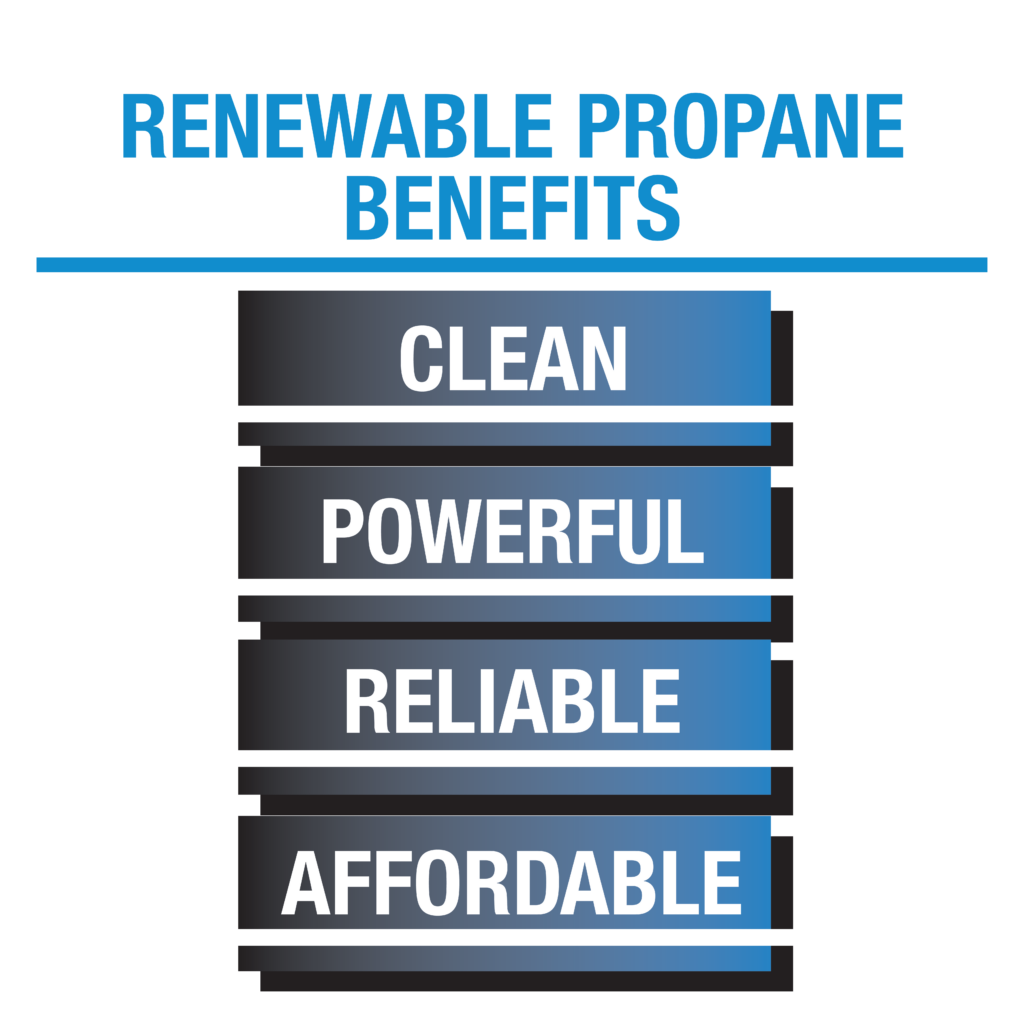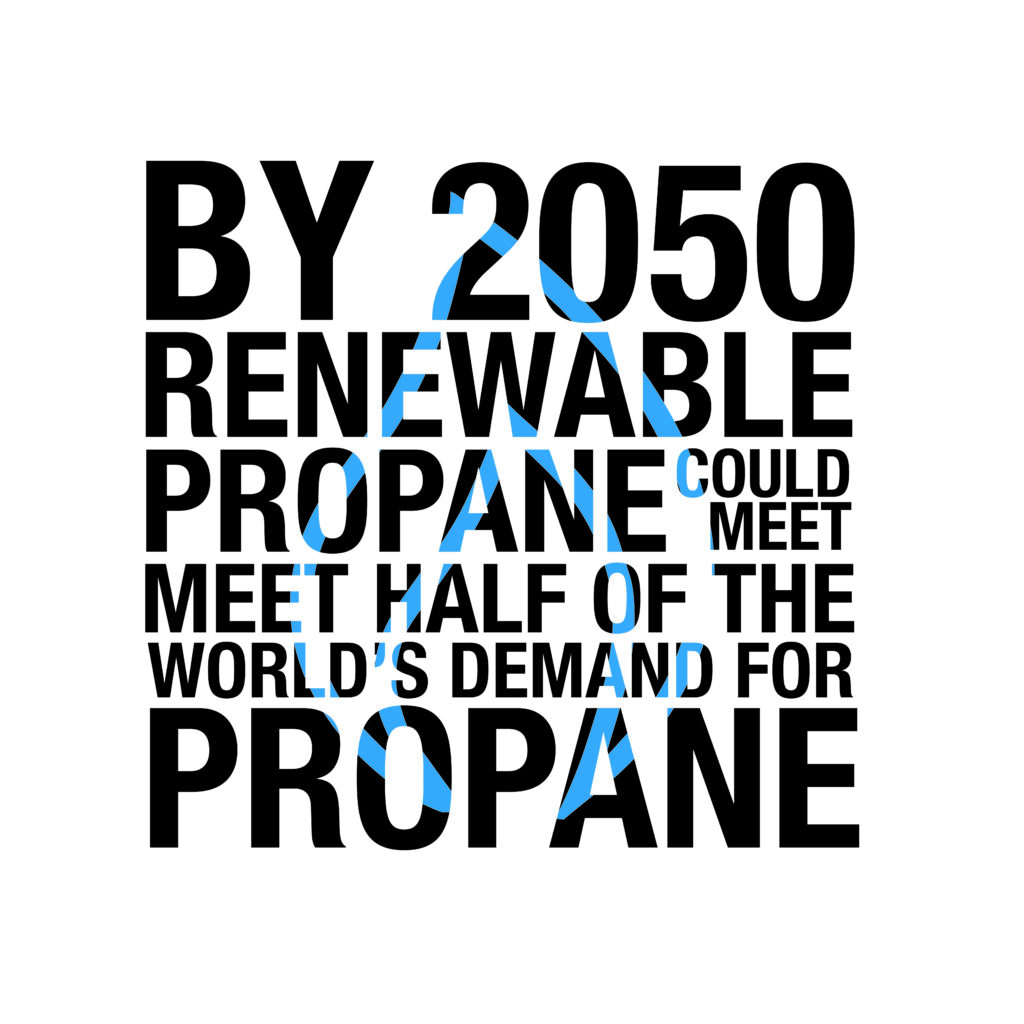
Renewable Propane
The next evolution in clean American fuel.
- Retains all the benefits of conventional propane: clean, reliable, powerful, economical.
- Is American-made from easy-to-find resources that would otherwise go to landfills.
- Has a carbon intensity five times lower than diesel.
- Can easily integrate into existing propane vehicles and infrastructure without requiring any modifications.
Because it’s abundant and ultra-clean, large companies such as U-Haul and governments like the Commonwealth of Virginia have already added renewable propane to their fleets.
Below, we’ve answered some of the most common questions about renewable propane to help fleet operators understand more about what’s on the horizon.
“We were already sold on propane school buses as a clean energy option to dirty diesel buses, and renewable propane enhances that sentiment.” — Sarah Marean, director of transportation, Bonny Eagle Public Schools, Maine

What is renewable propane?
Renewable propane (also known as biopropane or rLPG) is a non-fossil fuel produced from 100% sustainable materials. It’s commonly produced from feedstock like animal fat, plants and cooking oil. It can also be a byproduct of renewable diesel and sustainable aviation fuel production.
Renewable propane’s chemical structure and physical properties are the same as propane (C3H8), but it is even cleaner than conventional propane.
How can renewable propane help fleet operators reduce emissions?
Renewable propane is one of the cleanest alternative fuels on the market. At the point of combustion, renewable propane is carbon neutral, meaning no new carbon is added to the atmosphere.
The EPA’s Renewable Fuel Standards and the California Air Resources Board’s Low Carbon Fuel Standard include renewable propane as a way to reduce greenhouse gas emissions.
Is renewable propane available now?
Yes. U.S. fuel processors are making renewable propane today, and researchers and engineers are continuing to perfect the technology. The push for more clean fuel solutions has led to significant breakthroughs in renewable propane, including the use of sustainable aviation fuel, renewable diesel fuel and a drought- and pest-tolerant plant called camelina.
By 2050, renewable propane could meet half the world’s demand for propane, according to the World LP Gas Association.

To learn more, talk with your local propane supplier. You can find a supplier here.
Can renewable propane be used in my current ROUSH CleanTech propane engine?
Yes! ROUSH CleanTech’s propane autogas engines can operate on renewable propane with zero modifications. In fact, we were the first company to develop an ultra-low NOx engine for renewable propane that brings emissions to near-zero as defined by the California Air Resources Board.
Because renewable propane and conventional propane are exactly the same in chemical structure, renewable propane can be used for all the same fleet vehicle applications. This means no new infrastructure or engines are needed if your fleet is already using propane vehicles. Fleet operators also have the ability to blend conventional propane and renewable propane in the same vehicle.
How can I learn more?
The Propane Education & Research Council is committed to testing renewable propane, including blends with conventional propane, and standard development. Visit this page to learn more.













